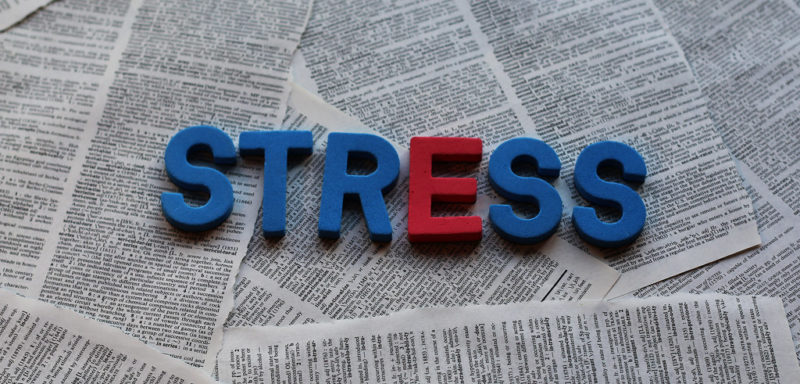Summary
– Fatigue and stress: a vicious circle!
– Fatigue and stress: methods to end fatigue and stress
– Analyze the symptoms of stress
Stress is a psychological response of our body to an uncertain situation. Although it is not necessarily bad, stress can have damaging consequences on our body, which can result in a multitude of symptoms:
– nervousness, irritability;
– concentration problems;
– excess (tobacco, alcohol, food, etc.);
– feeling of isolation, feeling of depression;
– fatigue, etc.
Fatigue and stress: a vicious circle!
Fatigue and stress often go hand in hand, and it is pretty simple to understand why.
Indeed, in periods of stress and anxiety, our body is under constant and sustained pressure and must constantly draw on our energy reserves when we are worried. This is what happens when we have trouble sleeping because of stress.
Thus, not only does the body draw more from its reserves, but sleep time is reduced, we no longer recover sufficiently, and fatigue sets in.
Fatigue and stress: methods to get rid of fatigue and stress
With fatigue and stress, beware of overwork!

As you can see, fatigue and stress form an explosive cocktail that can lead straight to overwork. Here are some tips to help you regain your biological and psychological balance.
Manage your stress
We are not all equal when it comes to stress.
Whatever the case, you have to know how to adapt, and managing stress starts with maintaining a healthy lifestyle. Here are some suggestions for managing fatigue and stress daily and getting back to sleep:
– Identify the causes of stress and try to find solutions. Are you overloaded with work at home? Learn to delegate and not let yourself be overwhelmed.
– Try to calm down your pace of life and make time for relaxation/leisure. A sporting activity such as swimming or running can be very beneficial! Fatigue after a physical effort clears the head and helps you find sleep without difficulty.
– Try to get up and go to bed at fixed times, even on weekends, to adjust your biological clock.
– Avoid situations that annoy you as much as possible: public transport, traffic jams…
Fight against stress
If you feel helpless in the face of your fatigue and stress, you can also find external solutions:
– medication for sleep disorders;
– alternative medicine (acupuncture, homeopathy, massages, plants with relaxing properties…);
– cures;
– yoga;
– psychotherapy;
– etc.
Learning to recognize the symptoms of stress is the first step towards healing. The next step is to identify the triggers of stress, both in our personal and professional lives.
With good stress management, we can prevent certain benign disorders from becoming much more severe pathologies. Here are some explanations.
Analyze the symptoms of stress
If you notice any of these symptoms, ask yourself:
– Are these symptoms temporary or recurring?
– Did you receive news that may have triggered the stress that led to these symptoms?
– Are you usually in good health?
– Do you have a good diet?
If you have any doubts about the origin of any of these symptoms, it is advisable to consult your doctor. He will prescribe an “emergency” allopathic treatment.
However, if your fatigue is caused by stress, it will not be enough to tackle the symptom, and you will need to identify the cause, i.e., the triggering factor that led to this fatigue.
See a doctor
He will help you by prescribing medication adapted to your case. For example, if you have insomnia following stress after being laid off, he can prescribe a treatment to help you get back to sleep.
If you suffer from depression or have been under stress for a long time without knowing the cause, he will direct you towards an adapted treatment and advise you to start psychotherapy.


